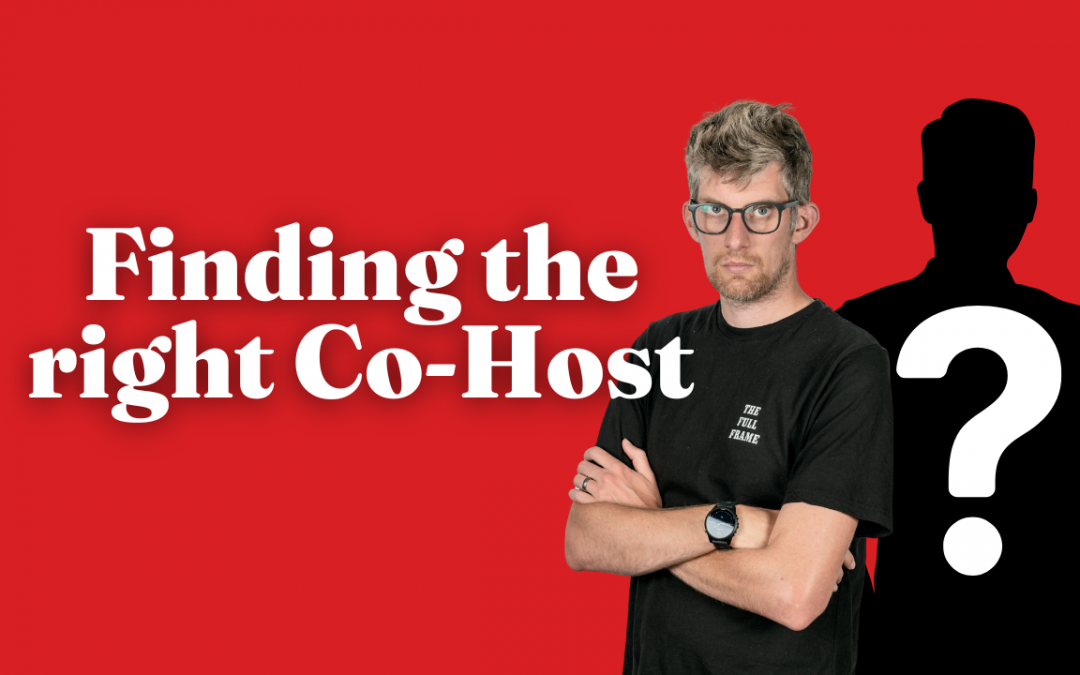How to Find the Right Podcast Co-Host
Starting a podcast is exciting — but one of the biggest decisions you’ll face is whether to go it alone or bring in a co-host. The right co-host can transform your show, making it more engaging, dynamic, and appealing to listeners. The wrong one can slow you down or even cause the show to fizzle out after a few episodes.
So how do you find the right partner?
Solo vs Co-Hosted: What’s Best?
Before looking for a co-host, it’s worth asking whether you actually need one. A solo show has its benefits: full creative control, no scheduling headaches, and a direct connection between you and the audience. But it can also feel lonely and put a lot of pressure on you to carry the conversation.
A co-host, on the other hand, brings:
-
Energy and variety — two voices naturally make the conversation livelier.
-
Shared workload — researching, hosting, and editing can be split.
-
Broader reach — your co-host’s network helps you grow faster.
The trade-off is that you’ll need to coordinate schedules, align your vision, and agree on roles.
What to Look for in a Co-Host
If you do decide to share the mic, here are the key qualities to look for:
-
Shared Goals
Do you both want the podcast to grow into a marketing channel? Is it more about brand building, thought leadership, or simply having fun? Alignment on goals is non-negotiable. -
Chemistry
Listeners can tell when two people click. You don’t need to be best friends, but you do need to bounce off each other naturally. If conversation flows easily without forced effort, you’re onto something. -
Complementary Skills
Maybe you’re great at research and structure, while your co-host is brilliant at storytelling. Different strengths create balance and make the podcast stronger. -
Commitment
One of the biggest reasons podcasts fail is inconsistency. Make sure your co-host has the same level of commitment to recording, preparation, and promotion as you do. -
Audience Fit
Think about your target audience. Does your co-host bring credibility, experience, or a perspective that your listeners will value?
Red Flags to Watch For
-
Unreliable scheduling — if they’re always too busy now, it won’t improve later.
-
Different expectations — one wants weekly episodes, the other monthly.
-
Unclear ownership — arguments over branding, editing, or even who “owns” the podcast can derail a good idea before it grows.
How to Test the Waters
Instead of locking yourself into a permanent co-hosting arrangement from day one, start with a trial run:
-
Record a pilot episode together.
-
Do a short mini-series.
-
Invite them as a recurring guest before deciding on full co-host status.
This way you can see if the dynamic works without overcommitting.
Final Thoughts
The right podcast co-host isn’t just someone you get on with — it’s someone who shares your vision, brings complementary skills, and can stick with the project long enough for it to grow. Done well, a co-hosted podcast can feel like inviting listeners into an ongoing conversation, making them come back week after week.
If you’re considering launching a podcast for your business, think carefully about whether to go solo or co-hosted — and choose the path that makes your content sustainable in the long run.

